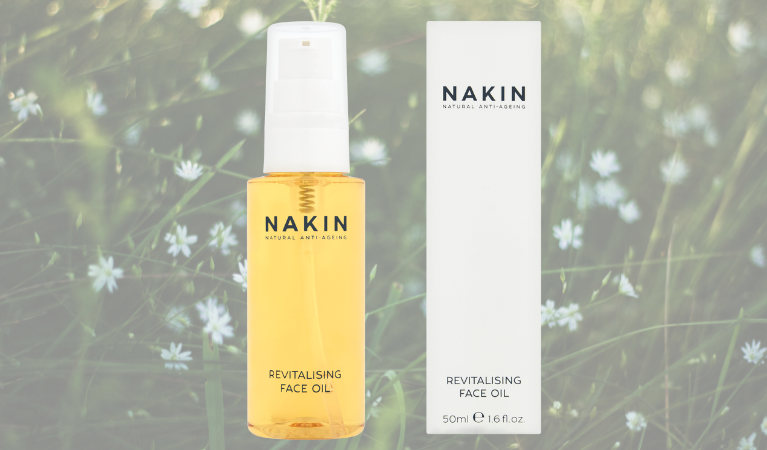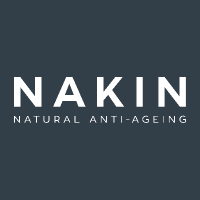Can Face Oil Replace a Moisturiser?

While face oils do help with moisturising skin, they cannot hydrate in the same way that a proper face moisturiser can. Even the best face oil like our Nakin Revitalising Face Oil cannot effectively protect the skin barrier and shield the damaging effects of pollution and cold weather. They will help to protect skin from the harmful effects of things like pollution, as they contain lots of nutrients that assist with this. However, face oils do not have the same hydrating properties and barrier protection that a good face cream will have. Having said that a face oil can really help with the skin’s moisture requirements and especially if you have dry and sensitive skin, or conditions such as eczema. Our recommendation is to use a face oil and a face moisturiser together for the ultimate hydration and conditioning, as face oils have so many benefits for skin. So, while face oils can never fully replace a face cream moisturiser, they are an excellent addition to a face care routine for many reasons, as outlined below.
- One of the best things about face oils is that the slippery consistency is able to slide into the skin cells, which allows the nutrients to condition them and provide a beautiful softness to skin.
- Face oils are incredibly calming to skin. They work to improve general dry skin and can even dramatically help skin conditions such as eczema. Face oils can heal and transform even irritated and flaky patches. Every face oil on the market will differ though, so always check that it is a 100% natural face oil and seek medical advice before use if you have a skin condition.
- Good natural face oils are packed with nutrition for the face and neck, and they can even be anti-inflammatory and antimicrobial. There are so many amazing plant oils available and at Nakin we use the very best as part of the special blend in our anti-ageing face oil. Most plant oils are lovely for skin, but we do recommend not using coconut oil on the face, it is full of nutrition but is extraordinarily rich. Another oil to avoid if you have dry skin is olive oil. Olive oil is fine as part of blend but can be drying to skin when used on its own. Our favourite plant oil ingredient has to be jojoba oil, as it is so lovely for skin and similar to our natural sebum.
Why a Face Oil is No Replacement for a Moisturiser
While face oils are an excellent addition to a skincare routine, they are not a substitute for a moisturiser. Moisturisers are specially formulated to provide hydration by attracting water into the skin and sealing it in, thanks to their water-based composition. Face oils, on the other hand, primarily focus on sealing moisture into the skin but do not contribute as much additional hydration, as they lack the same water content. This means that without a proper moisturiser, your skin could be missing out on essential hydration that prevents dryness and maintains a healthy skin barrier. Ultimately, combining the two products can yield the best results, with the moisturiser hydrating and the face oil locking in that moisture.
It is important to note that face oils can also have other added benefits, such as providing nourishment to the skin and delivering antioxidants. This can help improve the overall appearance and health of your skin, making it look more radiant and youthful. Good natural moisturisers like ours also have this benefit, as they are anti-ageing.
Moreover, each type of face oil has its unique properties and benefits for different skin types. For example, jojoba oil is suitable for all skin types and helps balance sebum production, while argan oil is ideal for dry or mature skin due to its high vitamin E content. Therefore, it is crucial to choose a face oil that caters to your specific skincare needs. This is why we use them in our Revitalising Face Oil, along with more special extracts.
Another essential factor when incorporating a face oil into your routine is the application technique. Unlike moisturisers, which can be applied all over the face, face oils should be used in moderation, as otherwise they can leave skin looking a little too shiny.
To get the most out of your face oil, it is recommended to use it before a moisturiser in your skincare routine. This allows for maximum absorption of the product into the skin and ensures that it stays locked in throughout the day or night.
While face oils offer many benefits for the skin, they should not replace a moisturiser in your routine. Instead, they should be used as a complement to provide extra nourishment and healing, face oils can be a game-changer in achieving healthy and glowing skin.
As you can see face oils should not be used instead of a moisturiser, as while they have some overlap in their capabilities, they also offer separate benefits to the face and neck. Most good face creams will contain some plant oils, so skin will receive some of their benefits when moisturising. Using a face oil and face cream together is the best way to keep skin superbly hydrated and nourished, plus prevent trans epidermal water loss. Nakin have both as part of our award-winning natural skincare routine and our products can be found in the links below.
- Discover our award-winning natural anti-ageing face cleansers.
- Discover our award-winning natural anti-ageing face treatments.
- Discover our award-winning natural anti-ageing moisturisers.
- Discover our award-winning natural anti-ageing eye cream.
- Discover our award-winning natural anti-ageing lip care.
- See our full range of natural anti-ageing products, with everything needed in a gorgeous face routine.
UK Skincare Sensitive Skincare Cruelty Free Skincare Vegan Skincare


Leave a comment